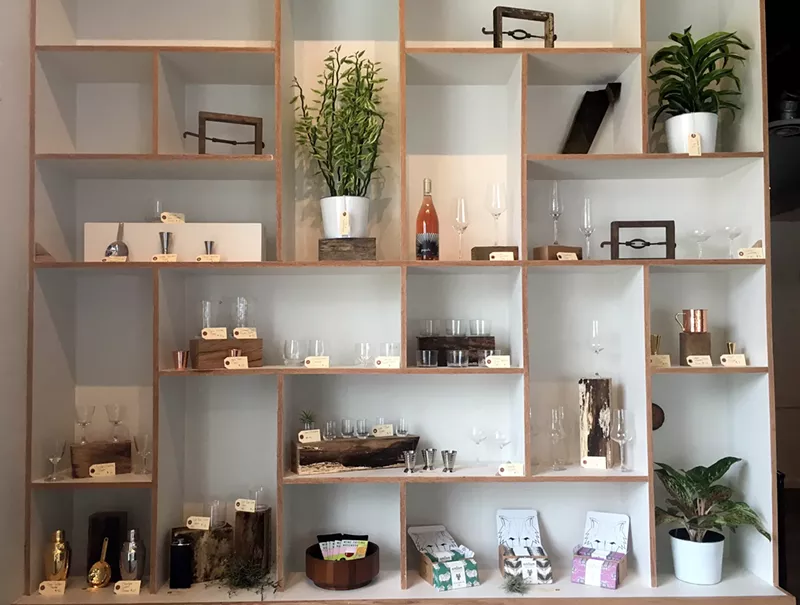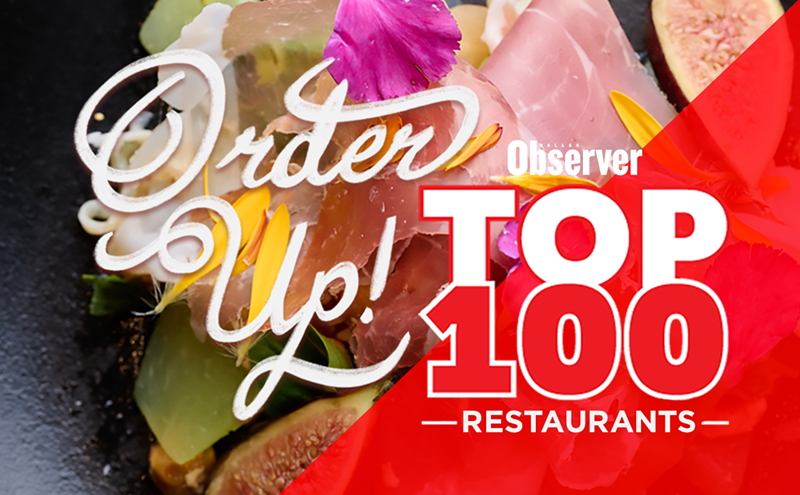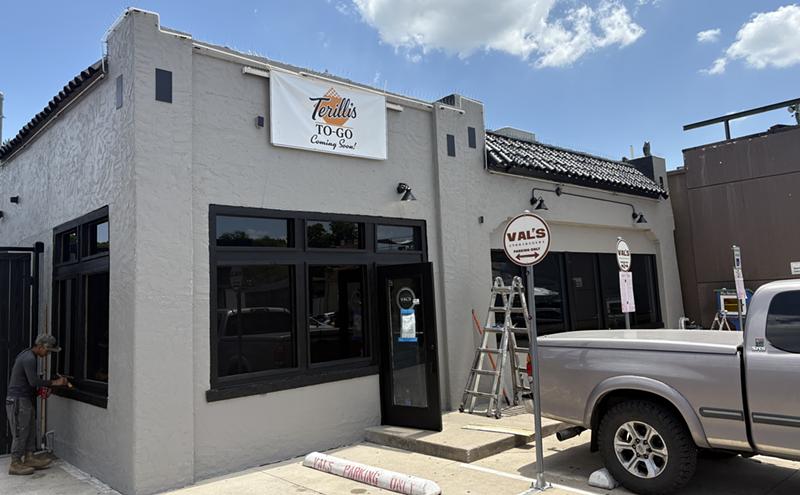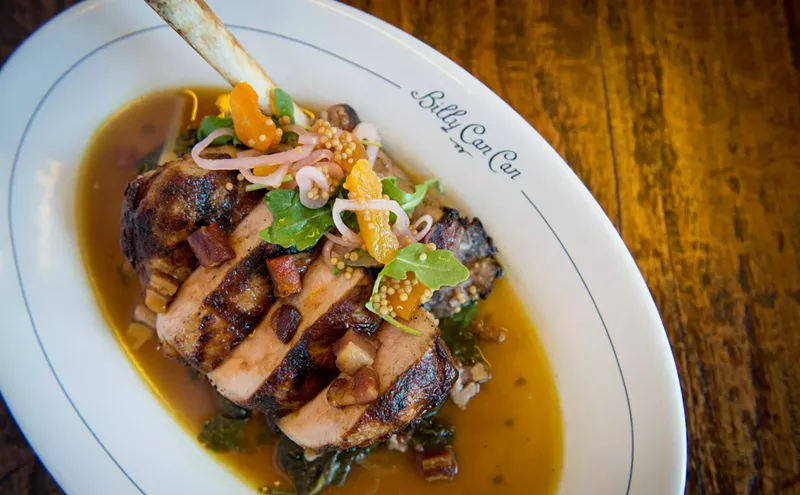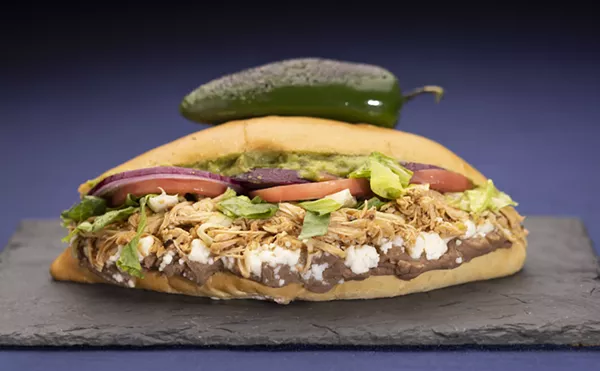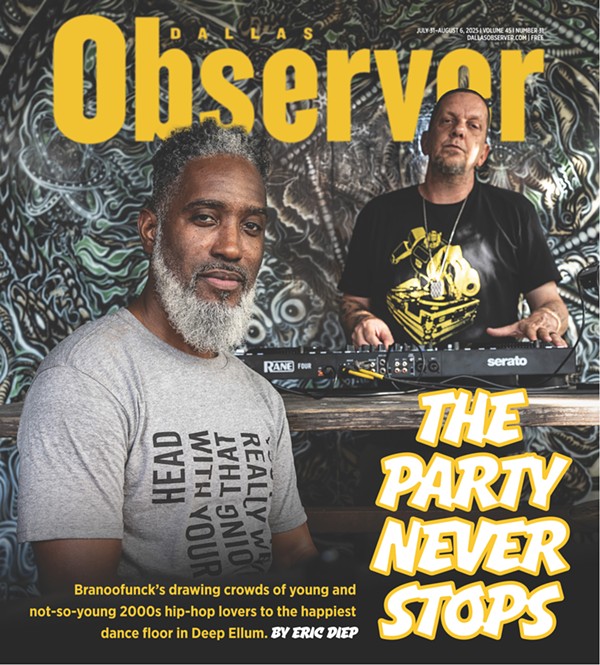The retail spot opened in February on Ross Avenue between sporty Houston import Little Woodrow's and a rancher-run grass-fed meat market. The design features light tones, tons of natural light and plant life throughout the rustic-refined space. Design isn’t the only thing separating Bar & Garden from other spirit-sellers in town. First off, this liquor store sells plants. Aside from providing a sense of nature indoors and providing a pleasant aesthetic, the plants throughout the store are all for sale. And then there are the natural wines.
Natural wines can be polarizing, to say the least, and while many a big box liquor-seller may tell you that they have no clue what you’re talking about, they are rapidly increasing in both popularity and production in recent years.
In terms of the vast history of wine-making, natural wines are nothing new. Humans have been producing wine for more than 8,000 years, and initially all wines were natural in that they were simply, naturally fermented from fruit juice. Over time, winemakers learned they could lower risks of spoilage, extend shelf-life and create greater consistency by using specialized, intentional yeast strains, powdered tannins, stabilizers, acid controllers and other additives.
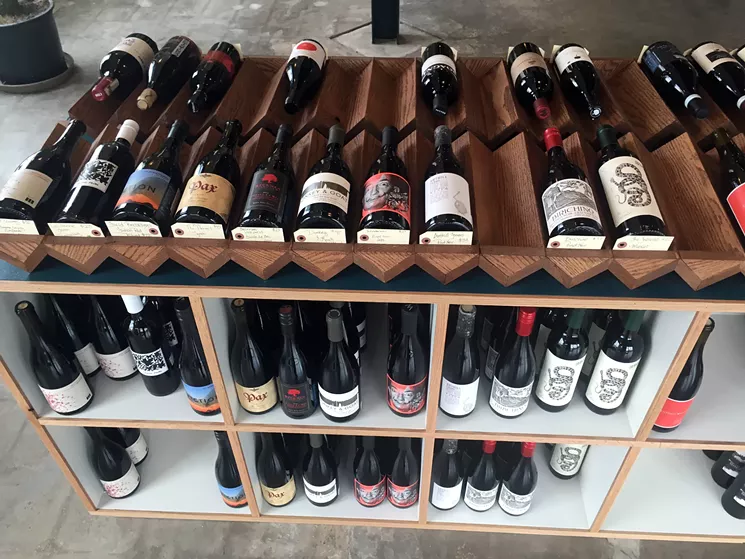
Bar & Garden specializes in natural wines, which are organically and bio-dynamically produced with little to no intervention in the fermentation or cellaring processes
Tim Cox
“We don’t want tons of harmful chemicals used in the production of the food we eat, why would we be OK with it in our wine?” asks Lauren Johnson, who, along with partner Marissa Mandel owns Bar & Garden in Dallas and its flagship location in Los Angeles. “You could start a big argument in the wine world right now by asserting you know exactly what makes up a ‘natural’ wine. We’re not really a part of that argument because we are comfortable with our definition of natural wine: no herbicides, pesticides or fungicides used on the vineyard, low-intervention cellar practices and a wine that is an expression of the place and time it comes from and the person who made it.
"It’s important — to us, anyway — because we don’t believe that grapes need to be manipulated within an inch of their lives to make good wine," Johnson says.
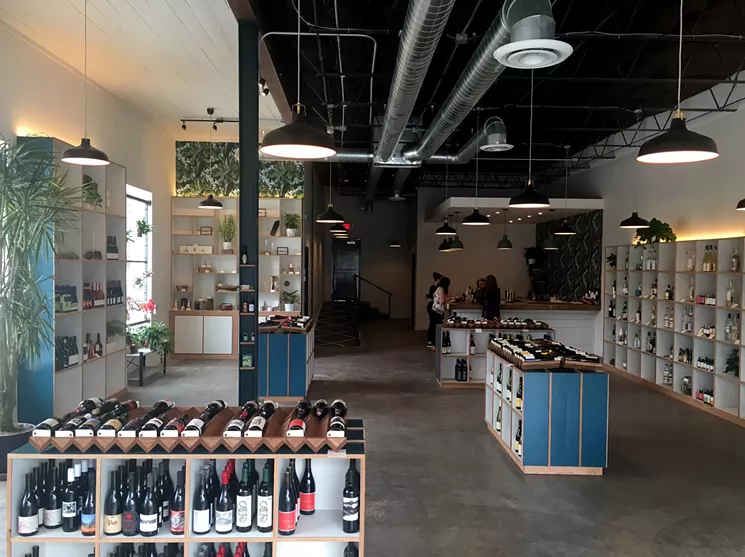
Thanks to Stash Design, Bar & Garden offers a finer aesthetic than your average liquor store.
Tim Cox
“We don't require that our wines have certifications, although many of them do,” Johnson says. “Certifications and definitions of ‘organic’ differ from country to country, and certification is a cost that many smaller producers can't afford. We research growing practices for any of our wines that aren't certified.”
The store’s focus on additive-free libations extends to their spirits selection as well, which focuses on smaller, independent producers that sell spirits free of artificial colors, flavors, or preservatives. For Bar & Garden, vetting the products they sell builds trust among consumers who are concerned with what goes into the products they buy."We don’t believe that grapes need to be manipulated within an inch of their lives to make good wine."
tweet this
“You’d be surprised what they can put in a bottle of alcohol and not put on the label,” Johnson says. This is due to laws established when Prohibition ended; alcoholic products are not regulated by the Food and Drug Administration but rather by the Tobacco Tax and Trade Bureau, which does not require the labels on alcoholic products to list ingredients.
Beer is the one area where Bar & Garden’s strict standards are relaxed a bit, but it’s out of necessity, although they would love for their beers to be made from ingredients which were never exposed to things like herbicides and pesticides.
“Due to the way the grains are grown here in the U.S., we’d have very few beers on the shelf if we did that,” Johnson says. “Instead we focus on small producers. In the Dallas store, since other places seem to have the local beer scene covered, I’ve decided to focus on small producers from places other than Texas, so you’ll see a lot of beer from Oregon, Michigan, Denmark, Norway, Germany, Belgium, all over the place. There’s so much good beer in the world right now.”
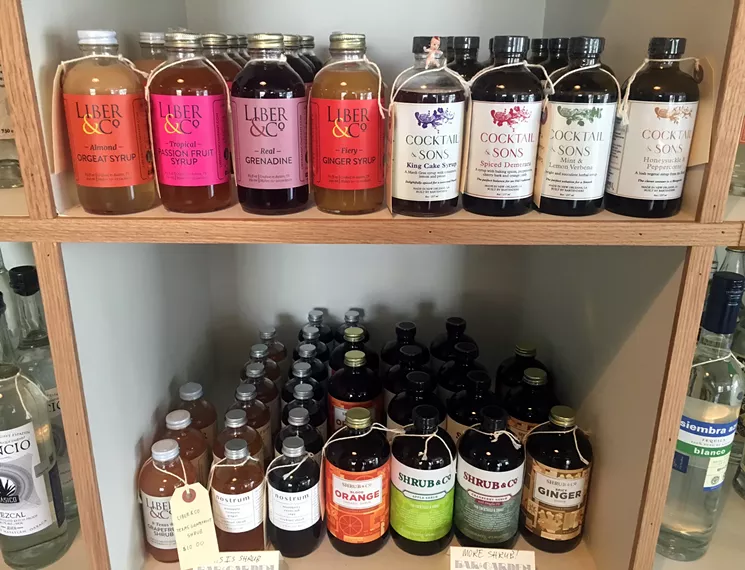
Along with natural wines and additive-free liquors, you'll find natural syrups, bitters and shrubs.
Tim Cox
“It’s wine, not brain surgery,” Johnson says. “There’s a lot of really tiresome, snobbish attitude around wine, but the truth is, for most of the world it’s a daily beverage. Wine does not need to cost a lot of money to be good. Our focus is on everyday wines and on providing new and interesting things for our customers to try.”
Many of these everyday wines are in the $15 to $30 range, so trying a few out won’t be too hard on your wallet, and if you’d rather try before you buy, the store offers free tastings from 5 to 8 p.m. Wednesdays and 3 to 6 p.m. Saturdays.
Bar & Garden, 3314 Ross Ave.

